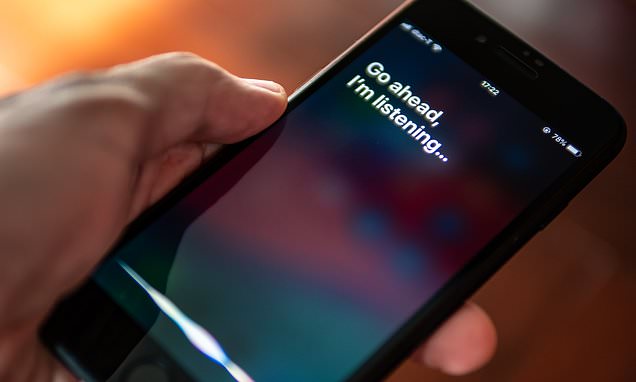Can’t bear the sound of slurping? First UK study shows one in five of us have condition called misophonia provoking a strong negative reaction to common noises
- Common sounds such as coughing and sniffing can negatively affect one in five
- UK study, the first of its kind, has delved into the condition called misophonia
- People with the condition are more likely to report anger or distress by sounds
Sniffing, coughing and slurping are sounds that most of us barely take notice of.
But such noises can be so bothersome to some people that they can cause distress, anger and even panic, scientists say.
You may have this condition, called misophonia, if you have a strong negative reaction to common sounds, from throat clearing and knuckle-cracking to couples kissing.
The first UK study of misophonia has now shown that it affects up to a fifth of us.
The study identified participants for whom the condition is a ‘burden’ on their lives – although only those with an extreme problem would need counselling to help with it. Researchers used a questionnaire to judge noise triggers, reactions and intensity of response of the 772 participants.
The scientists also identified red flags for misophonia for those wondering if they have it.
You may have this condition, called misophonia, if you have a strong negative reaction to common sounds, from throat clearing to sniffing
They found that if a person is stressed while hearing normal breathing and swallowing, this indicates they may have the condition, as these sounds do not trouble the majority of the population.
Senior study author Dr Jane Gregory, from the department of experimental psychology at the University of Oxford, said: ‘The experience of misophonia is more than just being annoyed by a sound. Misophonia can cause feelings of helplessness and being trapped when people can’t get away from an unpleasant sound.
‘Often those with misophonia feel bad about themselves for reacting the way they do, especially when they are responding to sounds made by loved ones.’
Experts say that those with misophonia often experience a fight-or-flight response to sounds, which can trigger anger and a need to escape.
The sounds can include people rustling, chewing gum or sneezing, as well as noises such as ticking clocks and car engines.
The study, which covered 37 common noise triggers and 25 different reactions in its questionnaire, found that people without misophonia do typically feel irritated by certain noises.
But the reactions of people with misophonia are more intense and they are more likely to report distress, anger or panic.
The study, published in the journal PLOS One, found misophonia affected 18.4 per cent of people in a significant way. Only 2.3 per cent thought they had the condition, however, and only 13.6 per cent had heard of it.
The analysis showed that misophonia was equally common in men and women. The average age of those with the condition was found to be 43.
Lead author Dr Silia Vitoratou, from King’s College London, said the study showed that ‘most people with misophonia do not have a name to describe what they are experiencing’.
Source: Read Full Article



